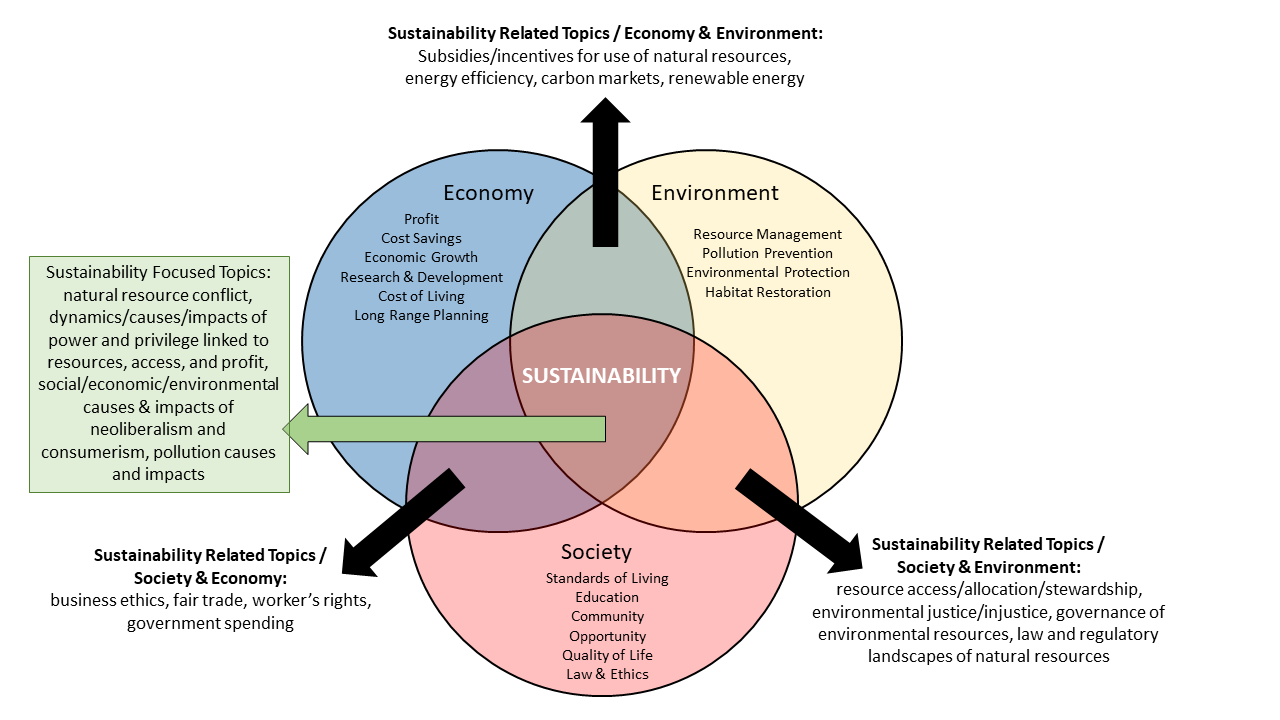Sustainability: What is sustainability?
Definitions:
Humboldt Advisory Committee on Sustainability (HACS)
Definition of Sustainability: Sustainability is the recognition that humanity is a part of the natural world, not separate from it, and that healthy social and economic systems depend on the resilience of ecological systems. (Established Spring 2018)
STARS (the Sustainability Tracking Assessment and Rating System) is a well-respected and deeply vetted tool for stakeholders at institutions of higher education to understand and report on sustainability. As such, this group provides the following text when describing sustainability in their Technical Manual (2018, version 2.1, page 14):
“Popular representations of sustainability underscore the concept’s three dimensions. Sustainability experts often use a three-legged stool as a symbol for sustainability. The social, economic, and environmental components each represent one of the stool’s legs. If one of the legs is missing, the sustainability stool can’t balance or function. A common illustration of sustainability is the diagram depicting three overlapping circles representing environmental needs, economic needs, and social needs. The area where the circles overlap and all three needs are met is the area of sustainability.”

Sustainability-related topics
| Society-environment interconnections | Society-economy interconnections | Economy-environment interconnections |
|---|---|---|
| Food insecurity | Dynamics/causes/impacts of poverty | Natural resource supply chains |
| Resource access/allocation | Business ethics | Business practices that minimize environmental footprint |
| Environmental justice/injustice | Fair trade | Lifecycle analyses for particular materials and products |
| Land use policy or politics | Worker's rights | Environmental impacts of neoliberalism & consumer culture |
| Governance of environmental resources | Social impacts of supply chains and markets | Energy efficiency |
| Law and regulatory landscapes of natural resources | Access to education | Carbon markets |
| Population, demography | Causes & impacts of housing insecurity | Renewable energy |
Resources
Click here to see Humboldt’s most recent Guide to Sustainability.
Download a list of example classes and research projects that have been designated as sustainability related or focused by the Sustainability Office and their partners.
Review a logic tree to understand how sustainability designations are made by the Sustainability Office and their partners.